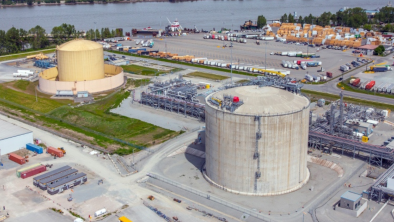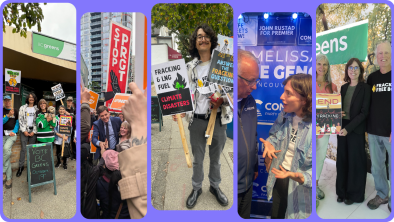Do fracking arrangements violate B.C. law? Environmental coalition gets day in court
Monday, March 17, 2014
THE PROVINCE

A coalition of environmental groups goes to court Monday to challenge the Oil and Gas Commission’s “systemic practice” of handing out repeated short-term water approvals for use in gas extraction operations in B.C.
A petition, filed in B.C. Supreme Court in November by the environmental law group Ecojustice on behalf of Sierra Club and Wilderness Committee, says the OGC is letting gas companies use billions of litres of water a year, for periods of up to five years, without obtaining a long-term water licence.
They claim this practice is a violation of the Water Act.
Short-term approvals are not intended to be for a period of more than 24 months. But, by issuing several consecutive short-term approvals to the same company for the same lakes and rivers, the petitioners claim, B.C.’s oil and gas regulator allows companies to avoid properly obtaining long-term water licences.
Eoin Madden of the Wilderness Committee said the issue boils down to accountability and democratic engagement.
Long-term water licences are subject to a greater degree of public scrutiny and consultation. Often there will be public hearings involving other people who could be affected by the industry’s water withdrawals, Madden said, including farmers, municipal governments, and First Nations communities.
By contrast, Madden said, the short-term approvals are “rubber-stamped.”
Morgan Blakley, one of the Ecojustice lawyers working on the case, said: “There’s more scrutiny and more of a process involved with getting a long-term licence.”
An OGC spokesman said Friday: “We cannot comment directly on this case, as it is before the courts.”
According to the B.C. Oil and Gas Commission’s annual report, “In 2012, a total of 7,054,704 (cubic metres) of water was used for hydraulic fracturing,” or fracking.
Seven billion litres of water is the rough equivalent of 2,800 Olympic swimming pools in a year.
Monday’s court date comes less than a week after the introduction of the Water Sustainability Act, a major new piece of legislation intended to update and replace the 105-year-old Water Act.
But Ecojustice’s lawyers are concerned that the very practices they’re challenging could be enshrined in the new act, based on their early readings of the draft legislation.
Blakley pointed to Section 10 of the proposed Water Sustainability Act and a new subsection that doesn’t appear in the existing Water Act. Ecojustice and their clients are concerned the new subsection would expressly allow the repeated issuing of consecutive short-term water approvals.
The Wilderness Committee’s Madden has travelled to northeastern B.C. to speak with people in some of the communities near fracking operations, and he said they are concerned and, in some cases, intimidated. Some have seen rivers and creeks “literally dry up,” he said.
“It’s water that communities depend on,” said Madden. “If you’re a farmer in the Peace River District and you’ve just lost access to a creek or a river, it’s a big deal.”
Photo: Eoin Madden, of the Wilderness Committee, is shown outside B.C. Supreme Court in Vancouver on Nov. 13, the day his organization filed a court action challenging the gas industry’s water usage for fracking operations.


